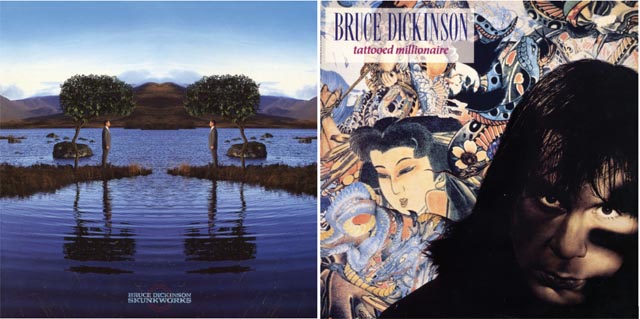 Now that Nine Inch Nails is coming back with a new album and constantly changing lineup, Trent Reznor is making his way around the press circuit. However, during a recent radio interview on The Kevin & Bean Show, Reznor further discussed the new music streaming service he’s been working on with Dr. Dre, Jimmy Iovine and Beats Electronics called Daisy. Not only did he give more insight into his role behind the project, but also claimed that Daisy aims to not take advantage of artists (unlike its competitors).
Now that Nine Inch Nails is coming back with a new album and constantly changing lineup, Trent Reznor is making his way around the press circuit. However, during a recent radio interview on The Kevin & Bean Show, Reznor further discussed the new music streaming service he’s been working on with Dr. Dre, Jimmy Iovine and Beats Electronics called Daisy. Not only did he give more insight into his role behind the project, but also claimed that Daisy aims to not take advantage of artists (unlike its competitors).
The entire interview can be heard over at CBSlocal.com, but here’s what Reznor had to say about the streaming service:
“… I was working with them, kind of as an experiment, on some hardware products that haven’t seen the light of day yet. But the talk around that camp—a couple years ago—was a real interest in putting out a subscription music based service that differs from the current offerings; by being a lot easier to use, and more based around curation. In a nutshell, it being smart enough to not just offer you ‘hey here’s all the tracks in the world, good luck, search for whatever you want’—that experience. But one where you’re being turned on to new things, based on what you like, and from trusted sources being served up things that is the right music for the right time and the right place. It was a really interesting proposition and project to be involved in from the ground up. Designing something that could reach a lot of people on mass scale—that also what I could bring to the table and have brought into the design of this—is the opportunity for it to be musician friendly and provide tools to the artist community which seems very disconnected from all that with current offerings.
On Spotify, my music is on there but I have no say or how it’s presented or what it looks like and me as a person has no connection to the artist in there. I’ve learned from doing everything myself in the last few years that there’s a lot of tools that could be provided and this doesn’t have to be end game where one side wins everything. I think that if a new platform emerged that could be the next big channel of the way people consume music—and at the same time it carves out some rights for the actual people that are making the music, and provides them with some tools and a way to curate their own material in a way that presents it hey way they’d like it to be presented—that feels like something worth fighting for.”
Reznor was then asked whether he thought services like Spotify were taking advantage of musicians, to which he replied by saying “Certainly, not only from royalties, but also from control of my wares. At least presenting things the way I’d like to. I find my music on services—I didn’t put it on there—I signed a contract 20 some years ago that said future technologies because I would have signed anything, and I did sign anything. And that meant any new thing comes out we can put your music on however we want and we’ll make sure we get taken care of, but you know, thanks for the good song.”
We’ve never considered how streaming services don’t really give artists any say as to how their music is presented to consumers (then again, most mp3 webstores don’t). However, the issue regarding royalties from streaming services (or lack thereof) has been well documented (emphasis on well documented). Most recently, Cracker frontman David Lowery revealed in a blog posting that Pandora paid him $16.89 for 1,159,000 plays of the song “Low” last quarter. “Less than I make from a single T-shirt sale. Okay that’s a slight exaggeration. That’s only the premium multi-color long sleeve shirts and that’s only at venues that don’t take commission,” Lowery joked. He does note that he only owns 40% of the song while the rest of the band owns the other 60% (thus the actual amount paid to songwriters multiplied by 2.5 or $42.25), and that he’s also paid a separate royalty for being the performer of the song that’s slightly higher. However, Lowery also claims that in comparison, Sirius XM paid him $181 while terrestrial U.S. radio paid him $1,522. Check out more detailed graphs Lowery shares in his blog posting, but maybe Reznor should consider artist royalties in addition to “visual control” when putting the finishing touches to Daisy.
[via theprp]










